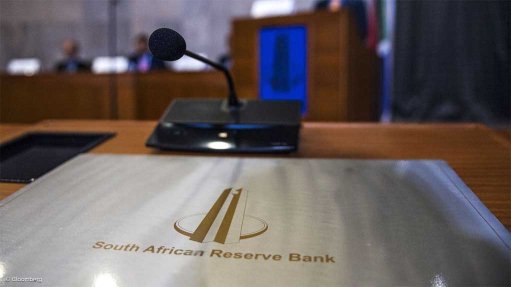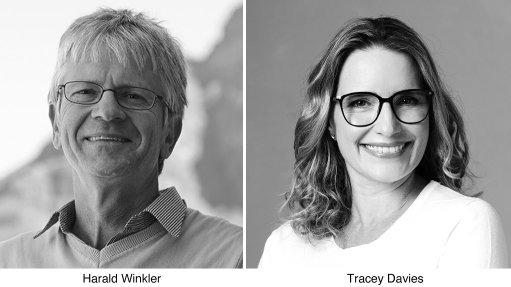France urges EU to designate Wagner as a terrorist entity
France’s Parliament has unanimously passed a nonbinding resolution encouraging the European Union (EU) to designate Russian paramilitary company the Wagner Group as a terrorist organisation. The resolution would allow the EU to freeze Wagner’s assets and those of its members and bar European citizens from dealing with the group. It could also force African governments to declare their allegiances in the Russia-Ukraine conflict.
Several African governments have defended their neutrality since Russia’s invasion of Ukraine, in a bid to retain autonomy in a shifting global power landscape. At the first vote on the resolution of the eleventh emergency special session of the United Nations General Assembly, 16 African nations abstained, with eight absent from the vote. In the fourth resolution vote, there were 19 African abstentions and five absences.
In forcing Africa’s hand, Europe is treading a fine line. Russia has cultivated friends on the continent and successfully sponsored anti-Western sentiment – notably among youth in the Sahel. The Council on Foreign Relations estimates that the Wagner Group has been active in Africa since 2017. France has bumped up against the Wagner Group in francophone West Africa, accusing the Russia-based group of aggression towards democracies in the region and of conducting “anti-French propaganda missions”.
In January, the US designated Wagner a “transnational criminal organisation”, prompting the UN to launch an independent investigation into possible war crimes and crimes against humanity perpetrated by the group in Mali. The Wagner Group is implicated in Mali’s 2021 coup, but Russia claims that Wagner forces were simply trainers helping local troops master equipment bought from Russia. UN investigators have been denied access to the site of an alleged massacre in Moura, Mali, by Malian troops and Russian fighters. The massacre reportedly occurred in March 2022 and resulted in the deaths of hundreds of civilians.
Wagner and its leader, Russian oligarch Yevgeny Prigozhin, a known close associate of President Vladimir Putin, were already subject to sanctions regimes by the US, the EU, the UK, Australia, Japan and Canada. The EU sanctioned the Wagner Group, its founder and senior commanders in 2020 under the Global Human Rights Sanctions Regime and furthered sanctions against the group in February, adding 11 individuals and seven entities to the regime.
The Wagner Group has so far avoided responsibility and accountability for the atrocities in which it has participated. In the Central African Republic (CAR) and other countries, Wagner has built a strong, almost positive, social image of its operations, deploying not just military personnel but also political, mining, business specialists and social media producers to protect and build the group’s interests. Wagner’s public relations arm, the Foundation for the Defence of National Values (FDNV), appears on EU sanctions lists, as does CAR-based radio station Lengo Sengo, known to manipulate public opinion on behalf of the group.
Russian Foreign Minister Sergei Lavrov toured the Sahel in February, vowing to expand Russian assistance “against terrorism” in countries including “Guinea, Burkina Faso and Chad, the Sahel region generally and even the coastal States on the Gulf of Guinea”. The claim that Wagner is a counterterrorism force in the region complicates the optics of an EU, UK or US designation of it as a terrorist organisation, especially in the wake of an attack by suspected Islamic militants that left 33 dead in Youlou, Burkina Faso, days after France’s Parliamentary vote.
The US Institute for Peace (USIP) cautions against the moral condemnation of the Wagner Group, highlighting its potential to be a polarising narrative. Condemnation of the group by foreign governments, including those in Africa, may not be forthcoming, especially from those that have previously partnered with non-State military organisations to preserve stability. Such a moral judgment of the Wagner Group assumes that partnership is a choice; however, a Sahel government official noted in a conversation with the USIP: “Wagner is a choice not of preference but of desperation [. . .] when your house is burning, you don’t judge the quality of water you spray to stop the flames.”
Moral condemnation alone is not enough to counter the influence of the Wagner Group on the continent. A war of words, in which the label of terrorism is deployed by both sides, is unlikely to win favour with African governments that have declared their intention to remain neutral on European affairs and maintain flexibility in their international relations.
EU, UK and US sanctions do little to affect Wagner Group members operating in African countries, where they will not face travel bans or restrictions on the use of local financial services. The African Union (AU) and other pan-African member organisations are unlikely to take steps to sanction the Wagner Group or declare it a terrorist organisation. The AU’s Peace and Security Council in February blocked the readmission of four sanctioned member States, Mali, Burkina Faso, Guinea and Sudan, the first three of which were sanctioned following military coups. The Economic Community of West African States (Ecowas) suspended Mali, Burkina Faso and Guinea in 2020; a review conducted in February resolved to maintain sanctions against all three countries, including travel bans against government officials and senior leaders.
While Ecowas and the AU have maintained their sanctions against the countries in which the Wagner Group is known or suspected to have operated, the sanctions do not explicitly mention the Wagner Group. The AU has voiced its opposition to “undemocratic change” but held back from criticising or highlighting Russian interests in each country.
The designation of Wagner as a terrorist organisation is another turn of the screw by European powers seeking to place pressure on Russia to halt its military activities in Ukraine. The designation will expand the legislative toolkit available to Western governments to tackle group members. A terrorist classification allows for the application of sanctions, asset freezes, travel bans against all suspected members of a terrorist organisation, including those who have not perpetrated violent acts. Such a designation also allows Western governments to challenge, arrest and detain suspected group members. In the UK, individuals arrested under the Terrorism Act 2000 can be held without charge for up to 14 days.
Should the US list the Wagner Group as a terrorist organisation, those subject to sanctions and criminal prosecution would increase further. “An American designation [would enable America to] go after Wagner Group supporters extra judicially. Anybody who provided material support to that organisation – even if they are non-US citizens – would then be subject to US prosecution.”
The UK has been swift to follow suit. The Times reported on May 9 that the British government was compiling a legal case to designate the Wagner Group as a terrorist organisation and increase pressure on Russia. If this happens, the Guardian reports that Ukrainian refugees may be able to seek damages in UK civil courts. Jason McCue, of McCue, Jury and Partners, estimates that 180 000 claimants could seek £5-billion in damages, which could be paid using sanctioned Russian assets in the UK.
The designation of Wagner as a terrorist organisation places pressure on international businesses operating in proximity to Wagner to avoid entanglement and to police supply chains to prevent any financial gain by the group. Multinational businesses and foreign companies operating in territories that host the group now face greater pressure to conform with sanction regimes, especially in countries where mapping the ownership and interests behind service and supply chain management companies is easily obscured.
Article Enquiry
Email Article
Save Article
Feedback
To advertise email advertising@creamermedia.co.za or click here
Press Office
Announcements
What's On
Subscribe to improve your user experience...
Option 1 (equivalent of R125 a month):
Receive a weekly copy of Creamer Media's Engineering News & Mining Weekly magazine
(print copy for those in South Africa and e-magazine for those outside of South Africa)
Receive daily email newsletters
Access to full search results
Access archive of magazine back copies
Access to Projects in Progress
Access to ONE Research Report of your choice in PDF format
Option 2 (equivalent of R375 a month):
All benefits from Option 1
PLUS
Access to Creamer Media's Research Channel Africa for ALL Research Reports, in PDF format, on various industrial and mining sectors
including Electricity; Water; Energy Transition; Hydrogen; Roads, Rail and Ports; Coal; Gold; Platinum; Battery Metals; etc.
Already a subscriber?
Forgotten your password?
Receive weekly copy of Creamer Media's Engineering News & Mining Weekly magazine (print copy for those in South Africa and e-magazine for those outside of South Africa)
➕
Recieve daily email newsletters
➕
Access to full search results
➕
Access archive of magazine back copies
➕
Access to Projects in Progress
➕
Access to ONE Research Report of your choice in PDF format
RESEARCH CHANNEL AFRICA
R4500 (equivalent of R375 a month)
SUBSCRIBEAll benefits from Option 1
➕
Access to Creamer Media's Research Channel Africa for ALL Research Reports on various industrial and mining sectors, in PDF format, including on:
Electricity
➕
Water
➕
Energy Transition
➕
Hydrogen
➕
Roads, Rail and Ports
➕
Coal
➕
Gold
➕
Platinum
➕
Battery Metals
➕
etc.
Receive all benefits from Option 1 or Option 2 delivered to numerous people at your company
➕
Multiple User names and Passwords for simultaneous log-ins
➕
Intranet integration access to all in your organisation


















